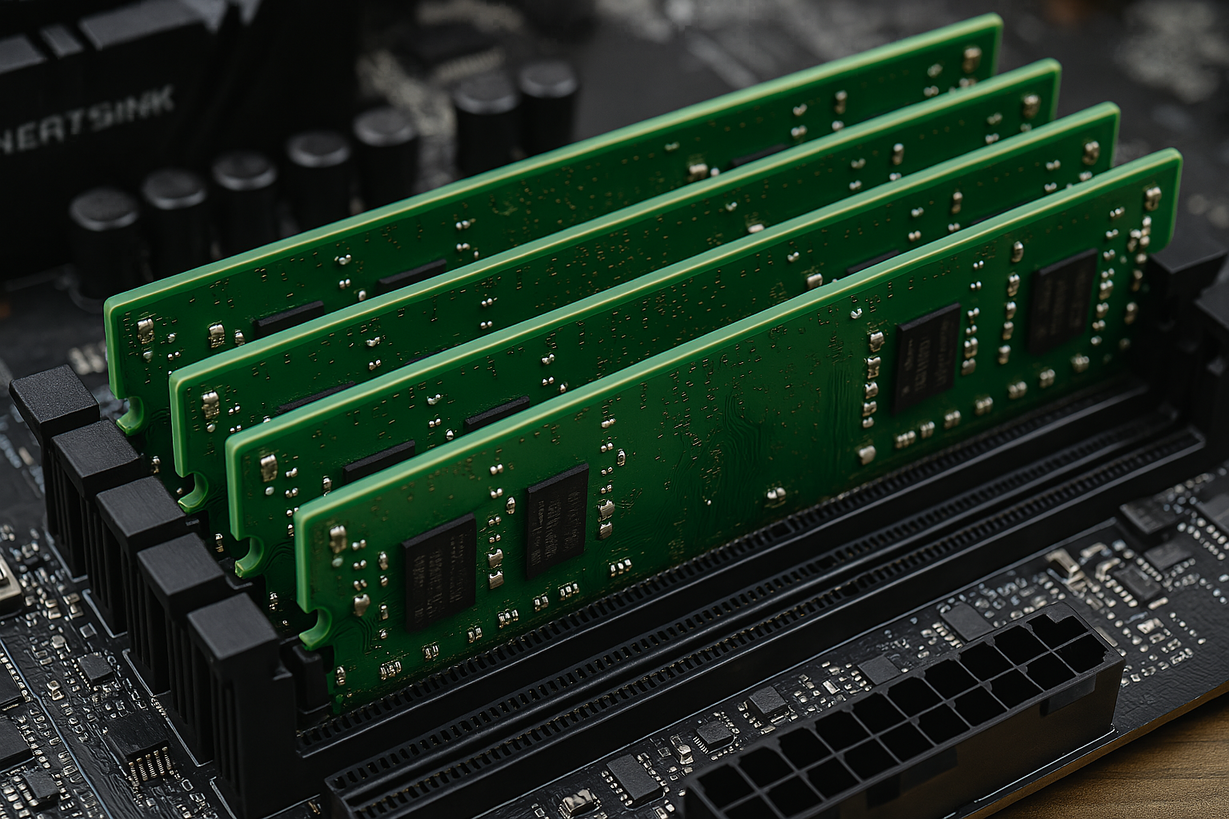Memory RAM Speeds Explained: The Affordable Key to Better Performance?

Introduction
Memory RAM speeds explained—this isn’t just tech jargon. If you’re using a slow computer or planning to upgrade, understanding RAM speeds can significantly boost your PC’s performance. Whether you’re a gamer, a content creator, or just someone trying to make your PC run smoother, RAM speed plays a critical role in how fast your system responds.
This blog is especially relevant for DIY PC builders, tech-savvy users, or anyone exploring PC memory upgrades. We’ll walk you through the definition of RAM memory, break down the different types of RAM speeds, explain how they affect your system, and show you how to check RAM (memory) speed on your own computer. You’ll also learn when and why upgrading PC memory could give you the performance edge you need.
What Is PC RAM Memory?
RAM (Random Access Memory) is your computer’s short-term memory. It temporarily holds data your system needs to access quickly, like active applications or files in use.
When people ask, “What is PC RAM memory?”, they’re usually trying to understand what makes their system fast or sluggish. The more RAM you have, and the faster it is, the more responsive your computer will be—especially when multitasking or using memory-intensive programs like games or video editors.
Definition: RAM Memory Speed
The term memory RAM speed refers to how fast your RAM can transfer data to and from your CPU. It’s typically measured in megahertz (MHz). Common consumer RAM speeds range from 2133 MHz to 5600+ MHz.
When discussing memory RAM speeds explained, it’s important to know that higher MHz doesn’t always equal better performance unless your system can utilize that speed. Compatibility with your motherboard and CPU matters.
How RAM Speeds Affect Performance
Do RAM speeds really matter? Yes—but with nuance. Faster RAM can improve load times, frame rates in games, and the overall responsiveness of your operating system.
For gamers, faster RAM can lead to smoother gameplay. For professionals using design software or multitasking heavily, it can mean fewer slowdowns and crashes. But if your system is old or your software isn’t demanding, you may not notice much difference beyond a certain point.
How to Check RAM (Memory) Speed
Want to know your current RAM speed? Here’s how to check it:
On Windows:
- Press
Ctrl + Shift + Escto open Task Manager. - Go to the Performance tab.
- Click Memory.
- You’ll see your speed listed in MHz.
Alternatively, tools like CPU-Z or Speccy provide more detailed memory information.
When Should You Upgrade PC Memory?
If your PC is slow during basic tasks, stutters during gaming, or crashes with too many tabs open, it’s time to consider a memory upgrade.
Signs you should upgrade PC memory:
- You have less than 8GB of RAM.
- Your current RAM speed is below 2400 MHz.
- Your system uses integrated graphics (which borrow from RAM).
Upgrading to faster, larger-capacity memory like Crucial Memory or similar brands can be a smart move. For detailed comparisons and high-performance memory options, check out PC Memory Finder for detailed comparisons and RAM reviews.
Types of RAM Speeds and What They Mean
| RAM Type | Common Speed (MHz) | Best Use Case |
|---|---|---|
| DDR3 | 1333–1866 MHz | Older PCs, basic tasks |
| DDR4 | 2133–3600 MHz | General computing, gaming |
| DDR5 | 4800–7200+ MHz | High-end gaming, creative work |
Higher RAM speeds (like 3200 MHz and above) are ideal for multitasking and demanding applications. But always make sure your motherboard supports the upgrade.
Choosing the Right RAM for You
When considering PC memory upgrades, balance speed with capacity. A 16GB kit at 3200 MHz often provides better value than 8GB at 4800 MHz for everyday users.
Brands like Crucial Memory offer reliable and compatible modules for nearly all systems. Always match the memory type (DDR3, DDR4, DDR5) to your motherboard specs. You can check out my blog post DDR4 vs DDR5, Does DDR5 Make a Noticeable Difference? for more information about DDR4 vs DDR5
Final Thoughts: Is Upgrading RAM Worth It?
Yes—if you know what you’re doing. Faster RAM speeds can noticeably enhance your PC’s speed and responsiveness. But understanding the definition of RAM memory, checking compatibility, and identifying bottlenecks first is essential.
Use tools to check RAM (memory) speed, review your system’s capacity, and visit resources like pcmemoryfinder.com for guidance on the best options for upgrading PC memory.
Ready to speed up your PC? Start by checking your current RAM speed and see if a simple upgrade can give your system the power boost it needs.